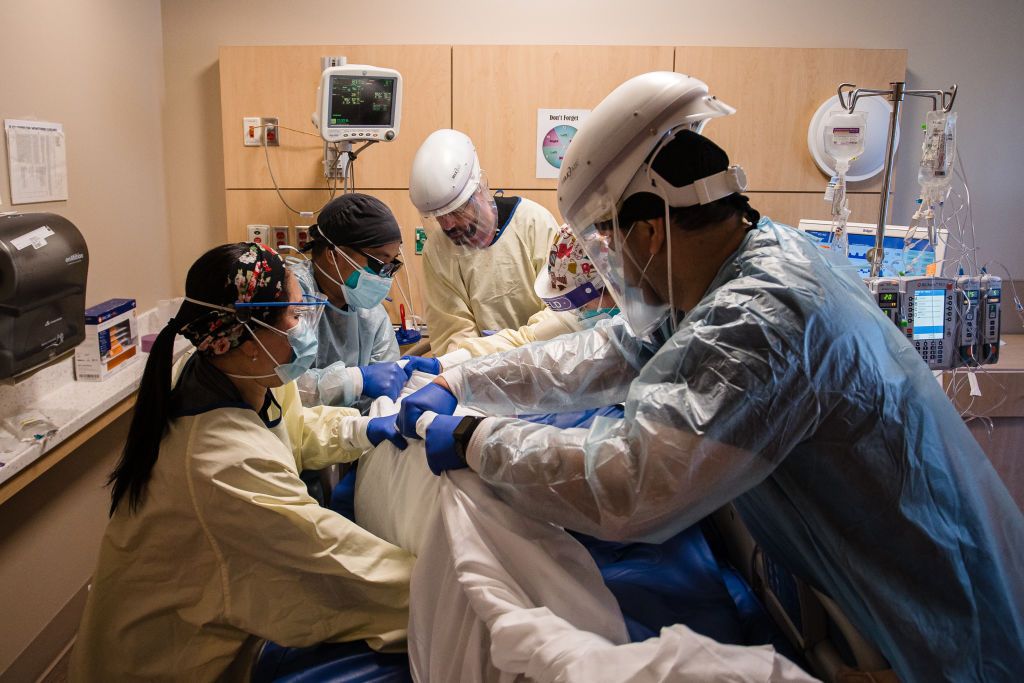Scientists in California are increasingly concerned about the state’s “homemade” coronavirus variant, with studies now showing that the variant is more transmissible than earlier strains and that it is more resistant to current vaccines, according to news reports.
The variant, known as B.1.427 / B.1.429, first emerged in California last spring, but only appeared on this radar on the radar of scientists, when cases of the variant quickly took hold in the state, according to The New York Times. However, scientists were not sure whether the variant was indeed more contagious than previous strains, or that it had simply become more common by chance – for example through a few over-spreading events.
In a new study, which has not yet been published in a peer-reviewed journal, researchers analyzed 2,172 virus samples collected in California in September 2020 and January 2021. They found that although the variant had not yet appeared in September, by January, it had become the predominant variant in California, and cases doubled every 18 days, reports The New York Times.
In addition, laboratory studies according to the New York Times found that the variant was 40% better at infecting human cells compared to earlier strains. In addition, people who tested positive for the California variant had twice the virus load (or levels of the virus) in the nose and throat than people who were infected with other versions of the virus. This could mean that people infected with the California variant could spread it more easily than people infected with other strains, according to the Los Angeles Times.
The researchers said that their findings mean that B.1.427 / B.1.429 should be considered as a “worrying variant” similar to the variants that originated in the United Kingdom, South Africa and Brazil.
“The devil is already here,” said lead author, dr. Charles Chiu, a virologist at the University of California, San Francisco, told the LA Times. “I wish it was different. But science is science.”
Lab experiments also found that antibodies in humans infected with other strains of the new coronavirus or vaccinated against COVID-19, it was less effective to “neutralize” or eliminate the California variant.
Yet the California variant may not be as successful as the South African variant of evading current vaccines. In laboratory studies, the South African variant elicited six times lower levels of antibodies than the levels produced in response to other strains, Live Science reported earlier. But the levels of antibodies produced in response to the California variant were only twice as low, the LA Times reported.
There is also very early evidence that the California variant may be more deadly than other strains. When Chiu and colleagues analyzed about 300 cases of B.1.427 / B.1.429 in San Francisco, they found that those infected with this variant were much more likely to die than those infected with other coronavirus strains. However, due to the small sample size (only 12 people died), the results may not be statistically significant.
Some researchers who were not involved in the new study said that the California variant does not appear to pose as much of a threat as other coronavirus variants. “This is not a case like the others,” William Hanage, an epidemiologist at the Harvard TH Chan School of Public Health in Boston, told The New York Times. He noted that the California variant does not appear to be rising in other parts of the country or the world, while B.1.1.7 (the British variant) appears to be rapidly taking over wherever it is introduced.
A study released earlier this month estimated that B.1.1.7 is up to 45% more transmissible than earlier strains in the US, according to CNN. Early data from California suggests that B.1.427 / B.1.429 may be up to 24% more transmissible than earlier strains, reports The Los Angeles Times.
Studies in the coming weeks will give a better understanding of how big a problem B.1.427 / B.1.429 is and whether it will win with other coronavirus variants already emerging in the state, including the British variant and the South African variant, reported The New York Times.
Originally published on Live Science.
